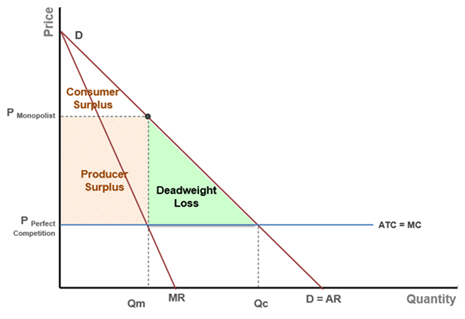What Should You Expect In AP Microeconomics?

January 29, 2018
AP Microeconomics at Warren is a one semester class and despite common misconception, it is not necessary to take AP Macroeconomics before or after taking this course.
What’s the difference? Macroeconomics is the study of the economy as a whole whereas microeconomics is the study of individual parts of the economy such as businesses, households, and prices. The curriculum is split into four different categories:
- Basic Economic Concepts: scarcity, opportunity costs, comparative and absolute advantage, and marginal analysis, etc.
- The Nature and Functions of Product Markets: supply and demand, consumer choice theory, production and costs for both short and long run, and firm behavior and market structure
- Factor Markets: derived factor demand, marginal revenue product, hiring decisions in the market for labor and capital, and market distribution of income
- Market Failure and the Role of Government: externalities, public goods, public policy to promote competition, and income distribution
If you are unfamiliar with economics, these terms may mean nothing to you. The extent of material the class covers goes into much greater detail of the things listed above, and learning all of it within a semester may seem overwhelming at first glance. However, all the topics flow into one another smoothly in a way that’s easy to grasp quickly and new content always builds upon what was taught earlier in the course. The class itself is graphs upon graphs upon graphs, as well as a few formulas. Any math necessary is minimal and very easy, considering the AP Exam does not allow a calculator.
After taking this class, I know what shifts the demand curve (Hint: it’s PrITEN: the price of related goods like substitutes or complementary goods, changes in consumer income, tastes/preferences, expectations, and number of buyers in the market). I can compute different profits, explain how monopolies work, and even find a company’s productive efficiency. The class helps you understand the intricacies of the economy, and I enjoyed it because the material is actually useful/relevant to real life.
So that’s the course in a nutshell. But what about daily work? How hard are the tests?
The two teachers at Warren for APMicro are Mr. Franta and Mr. Zaban. They teach very similarly and work off the same calendar which is available for students to refer to every day for their in-class assignments, homework, and notes. Homework never took me longer than thirty minutes as it was mostly doing pages out of a workbook, watching supplemental videos, or previewing notes for the next topic. The course moves fast, but both teachers are thorough with explaining everything you could possibly see on the test and are very good at what they do. Tests are split into two parts: a free response portion and a multiple choice section. Honestly, if you pay close attention in class and do all the homework, the tests should pose no problem.
What if I’m taking other AP courses? Will the workload be too much?
I took this course as a junior with three other AP classes. This was by far the lightest workload, but I would be careful to not make the mistake of calling the class easy and trying to skate by on minimal effort (which some are want to do, as all homework answers are already posted on the calendar). It does take effort, but I would encourage anyone interested in taking the course to not be afraid, and to sign up!








